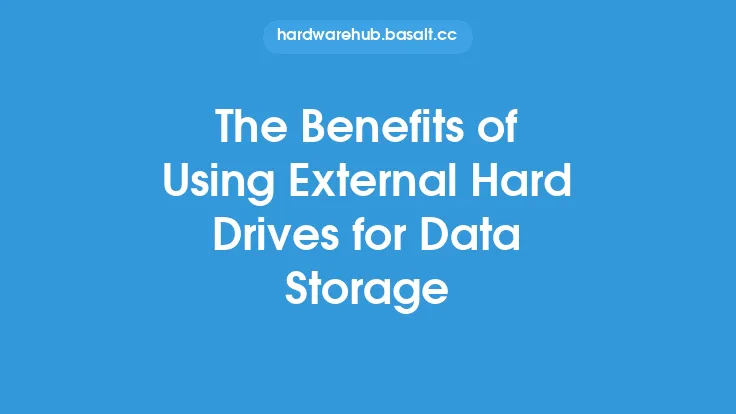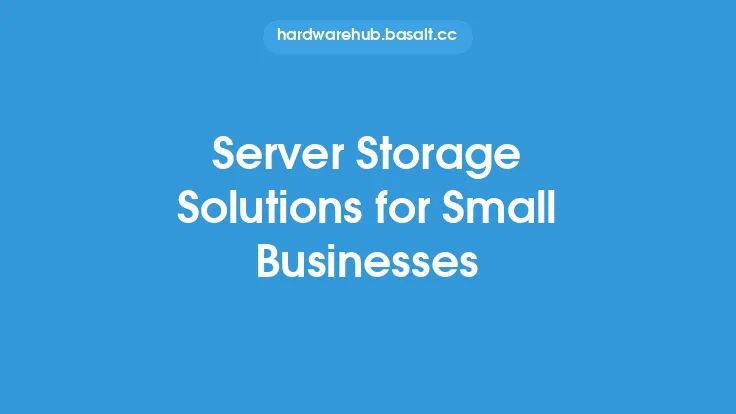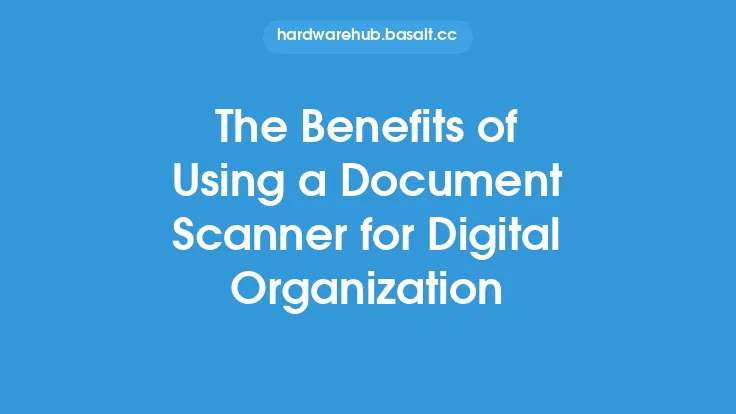The use of cloud storage solutions has become increasingly popular among businesses in recent years, and for good reason. By storing data in the cloud, companies can enjoy a range of benefits that can help to improve their operations, increase efficiency, and reduce costs. In this article, we will explore the benefits of using cloud storage solutions for businesses, and examine the ways in which they can be used to support business goals.
Introduction to Cloud Storage Benefits
One of the primary benefits of using cloud storage solutions is the ability to access data from anywhere, at any time. This is particularly useful for businesses with remote workers or multiple locations, as it allows employees to collaborate and share files easily. Cloud storage solutions also provide a high level of scalability, making it easy to increase or decrease storage capacity as needed. This means that businesses can quickly respond to changes in their storage needs, without having to worry about the costs and logistics of upgrading their physical storage infrastructure.
Cost Savings
Another significant benefit of using cloud storage solutions is the potential for cost savings. By storing data in the cloud, businesses can avoid the need for expensive hardware and maintenance costs associated with on-premises storage solutions. Cloud storage providers typically offer a pay-as-you-go pricing model, which means that businesses only pay for the storage they use. This can be particularly beneficial for small and medium-sized businesses, which may not have the resources to invest in expensive storage infrastructure. Additionally, cloud storage solutions often include automatic software updates and maintenance, which can help to reduce the administrative burden on IT staff.
Increased Collaboration and Productivity
Cloud storage solutions can also help to increase collaboration and productivity among employees. By providing a centralized location for storing and sharing files, cloud storage solutions make it easy for teams to work together on projects and share information. Many cloud storage solutions also include features such as real-time commenting and editing, which can help to facilitate collaboration and reduce the need for email attachments and version control. This can be particularly beneficial for businesses with remote workers or multiple locations, as it allows employees to collaborate and share files easily, regardless of their location.
Data Protection and Recovery
Cloud storage solutions also provide a high level of data protection and recovery. By storing data in the cloud, businesses can ensure that their data is safe and secure, even in the event of a disaster or hardware failure. Cloud storage providers typically have multiple data centers and redundant systems in place, which means that data is always available and can be quickly recovered in the event of an outage. Additionally, many cloud storage solutions include features such as automatic backups and versioning, which can help to ensure that data is always up-to-date and can be easily recovered in the event of a loss.
Scalability and Flexibility
Cloud storage solutions are also highly scalable and flexible, making it easy for businesses to adapt to changing storage needs. By providing a flexible and on-demand storage solution, cloud storage providers can help businesses to quickly respond to changes in their storage needs, without having to worry about the costs and logistics of upgrading their physical storage infrastructure. This can be particularly beneficial for businesses that experience seasonal fluctuations in storage demand, or for businesses that are growing rapidly and need to quickly scale their storage capacity.
Technical Benefits
From a technical perspective, cloud storage solutions offer a range of benefits, including the ability to support a wide range of file types and formats. Many cloud storage solutions also include features such as load balancing and content delivery networks (CDNs), which can help to improve performance and reduce latency. Additionally, cloud storage solutions often include advanced security features, such as encryption and access controls, which can help to protect data and ensure that it is only accessible to authorized users.
Business Continuity
Cloud storage solutions can also help to support business continuity, by providing a secure and reliable storage solution that can be accessed from anywhere. By storing data in the cloud, businesses can ensure that their data is always available, even in the event of a disaster or hardware failure. This can be particularly beneficial for businesses that rely on data to operate, such as financial institutions or healthcare organizations. By providing a secure and reliable storage solution, cloud storage providers can help businesses to minimize downtime and ensure that they can continue to operate, even in the face of a disaster.
Compliance and Governance
Finally, cloud storage solutions can also help businesses to meet compliance and governance requirements, by providing a secure and auditable storage solution. Many cloud storage solutions include features such as access controls and auditing, which can help to ensure that data is only accessible to authorized users and that all access is tracked and recorded. This can be particularly beneficial for businesses that are subject to regulatory requirements, such as HIPAA or PCI-DSS. By providing a secure and auditable storage solution, cloud storage providers can help businesses to meet compliance and governance requirements, and avoid the risk of fines and penalties.





